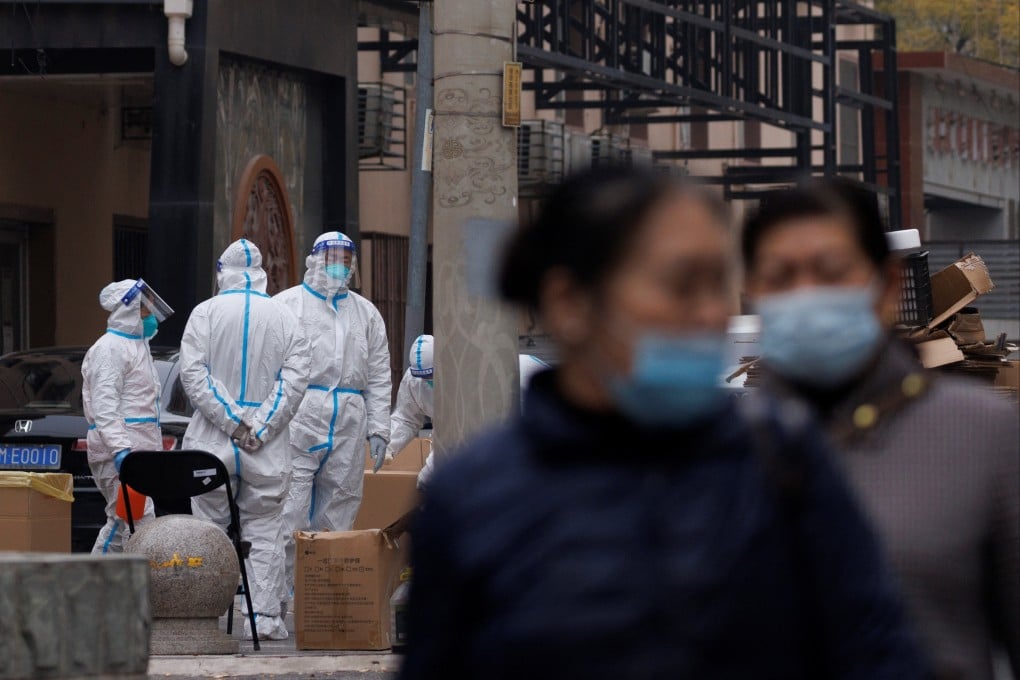Advertisement
Coronavirus: Beijing moves teaching online, urges people to stay home while testing China’s shift from strict measures
- The deaths of two more elderly people, both with pre-existing conditions, bring the pandemic death toll in the Chinese capital to 12
- Lockdown came quickly and quietly, residents report, as the city attempts to curb rapidly growing outbreak without relying on previous harsh measures
Reading Time:3 minutes
Why you can trust SCMP
14

Schools in Beijing have switched to online teaching and residents of several districts have been asked to limit their movements as the city’s Covid-19 cases soar and new virus-related deaths add to the city’s pandemic toll.
Officials in Haidian district said schoolchildren would have one week of online learning from Monday and that regular testing would be conducted in the district. Other districts, such as Xicheng, Dongcheng and Fengtai, gave notice of remote teaching.
The city authorities also said that starting from Tuesday, anyone arriving in the city will have to take three PCR tests over three consecutive days.
Advertisement
Covid-19 outbreaks are rapidly expanding in the capital, with 962 infections reported on Monday, including 266 detected during community screening, suggesting authorities are struggling to contain the outbreaks. The case numbers have more than doubled since a week ago, when 407 infections were reported.
A spokesman for the Beijing government, Xu Hejian, said on Sunday the situation for epidemic prevention and control “is grim”.
Advertisement
Advertisement
Select Voice
Select Speed
1.00x
